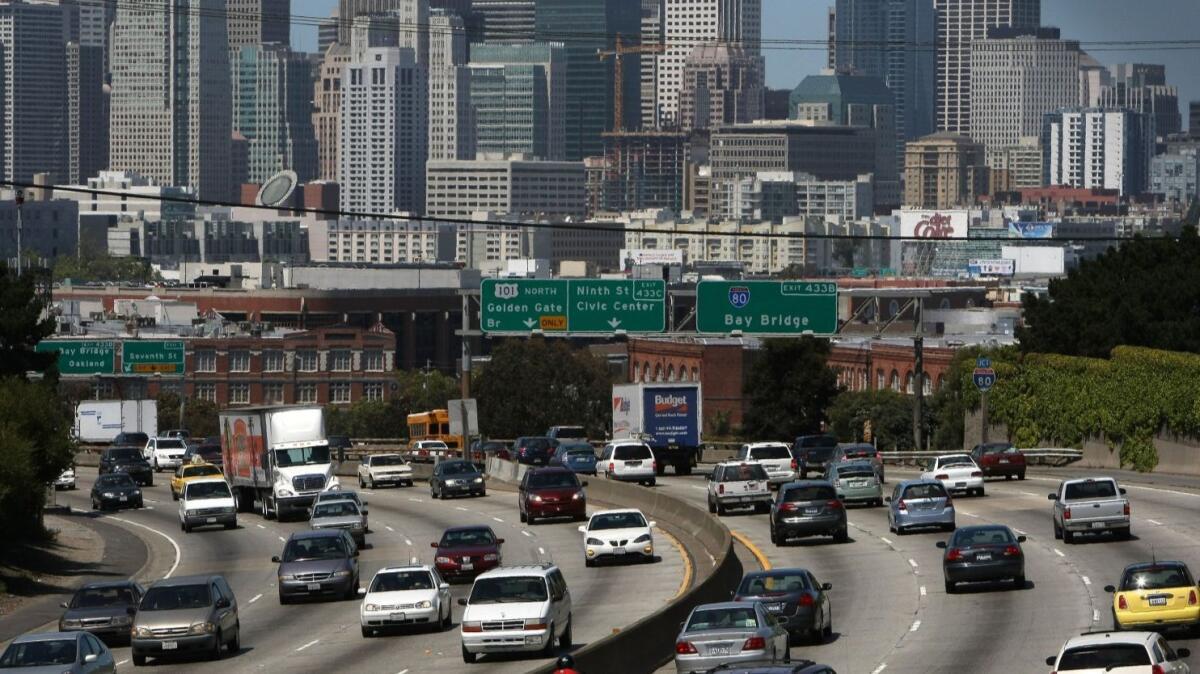EPA to reconsider vehicle fuel standards, may move against California targets

The Environmental Protection Agency plans to announce its intent to withdraw final determination on strict fuel-efficiency standards for future cars and light trucks, the latest signal by the Trump administration that it is charting a new course on climate change.
According to individuals briefed on the matter, the new administration also is considering issuing an executive order that would revoke California’s ability to set its own, tighter targets for those model years. California is the only state allowed to do so under the Clean Air Act, but other states can adopt its regulations as their own.
Two associations representing the world’s biggest automakers last week asked EPA Administrator Scott Pruitt to reconsider the standards for model years 2022 to 2025, which would require the nation’s car and light-truck fleet to average 54.5 miles per gallon by the end of that period.
Although automakers struck a 2009 deal with the Obama administration to set the first-ever carbon limits on cars and trucks, many of them now say it will be difficult to achieve these long-term targets given the lower price of gasoline and Americans’ preference for sport-utility vehicles.
The EPA and the National Highway Traffic Safety Administration agreed to review the 2022-25 standards when they set them five years ago, but the EPA concluded in December that no revision was necessary. It finalized the standards a week before President Trump took office.
Margo Oge, who directed the EPA’s office of transportation and air quality from 1994 to 2012, said in an email that the agency’s recent decision to lock in the fuel-efficiency rule “was made on sound science and thousands of man-hours of analysis.”
“If the Trump administration were to rely on facts and sound science, they would come to the same conclusion that the EPA staff and outside experts reached: The 2025 standards are achievable and in a way that will save consumers trillions in fuel costs,” she said.
Any decision to revoke California’s federal waiver could spur a major legal fight, and the state has already retained former U.S. Atty. Gen. Eric H. Holder Jr. The state will “vigorously participate and defend ourselves” on setting the state’s own air quality rules, California Air Resources Board Chair Mary Nichols said.
The EPA declined to comment Friday.
Gloria Bergquist, vice president of the Alliance of Automobile Manufacturers, said by email that its view “has been well reported, so we will not have additional comment until there is an official announcement one way or the other.”
But a collection of eight energy, environmental and science advocacy groups implored Pruitt to uphold the standards.
“EPA’s clean car standards are driving unprecedented reductions in carbon pollution and saving drivers money at the pump,” Rhea Suh, president of the Natural Resources Defense Council, said in a statement. “Strong standards have been a critical factor in the auto industry’s recovery from financial distress, so it makes no sense to reverse this progress.”
Inside EPA first reported the agency’s pending action.
Jeffrey Holmstead, a partner at Bracewell LLP who served as a senior EPA official under President George W. Bush, said Friday that the new administration always had the option of setting a different standard through a new rulemaking process. So the EPA’s action Jan. 13 “was a political determination,” he added.
Eilperin and Dennis write for the Washington Post.






